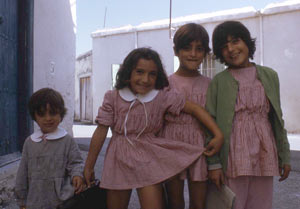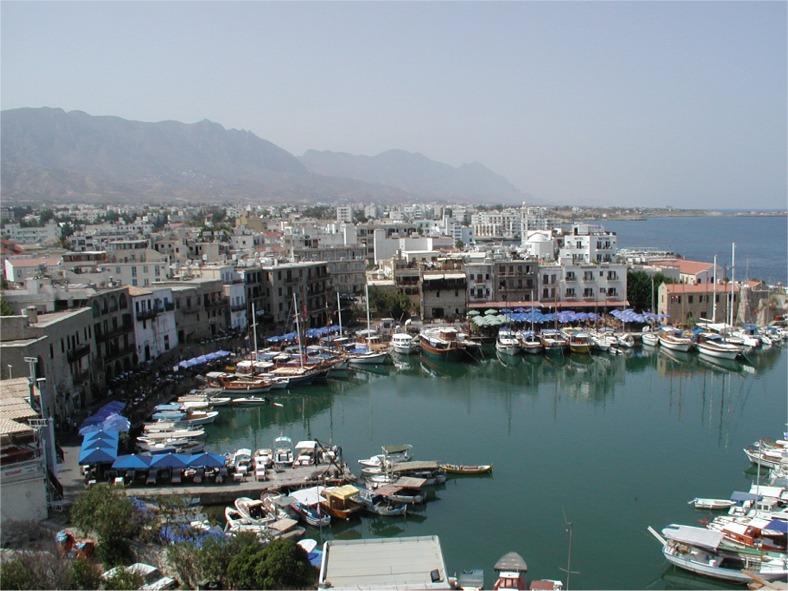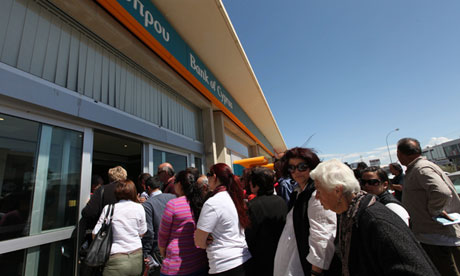A post I enjoyed this morning.

Inspiration and encouragement for your own personal journey of awakening …
A post I enjoyed this morning.
Cyprus was an awakening for me on many levels. I lost everything I owned, escaped with the clothes on my back, and felt grateful to be alive. Others weren’t so lucky.
Cyprus taught me that doomsday can happen anywhere, at any time — a natural disaster, a financial disaster, the loss of a home. The important thing is to be aware and plan, so that your assets don’t all sit in one basket under one government.
The Lullaby Illusion–FAB Review!
Thanks Diane Donovan for reading and reviewing my book!

In the early hours of Saturday morning, on 20 July 1974, I awoke to the distant drone of aircraft. Stunned, I sat up in bed and listened. Planes. Getting louder. The realization sent shivers down my spine. I placed my hands over my heart. “Oh, my God!” I gasped. “It’s the Turks!” I looked at the clock—5:20. The crack of dawn. I jumped from bed and screamed, “The Turks are attacking.”
Moments later, a series of explosions awakened the entire sleepy, seaside village of Kyrenia, Cyprus.
It happened 40 years ago today but I still remember the details vividly; the sights, the smells, the sounds, the taste of dirt and rubble collapsing around me as I ran under the stairs for shelter.
My peaceful life in Cyprus was blown apart first by the Greek Officer’s coup on 15 July 1974, followed five days later by the Turkish invasion on 20 July 1974. Thousands of lives were shattered forever by the atrocities, including foreigners who like me who lived there. To this day I marvel, bewildered at how at how a tranquil place, seemingly paradise, could be rendered a living hell in the space of a few days. The fighting between Greeks and Turks almost started a world war because two NATO allies fought against each other. The island of Cyprus remains divided by a line cutting across the capital of Nicosia–the world’s last divided capital.
And there are conflicts and atrocities happening all over the globe; In Syria, Tunisia, the Gaza strip, Ukraine, the Central African Republic, Republic of Congo, Egypt, Mali, Nigeria, Somalia, Sudan, and South Sudan.
The vast majority of casualties in any war are civilians, who neither want war nor gain anything from it. Quite the opposite. War defeats the human spirit. What will it take to bend history, and honor the will of the people over that of their “leaders?”

Photo essay of abandoned Cyprus buffer zone
I found myself staring at the photo essay above, by Reuters photographer Neil Hall, for a long spell. The disturbing images sent me back in time, as I sorted through my personal memories of the island of Cyprus during the early 70s.
On 15 July 1974, I was at the airport in Nicosia waving my husband (at the time) goodbye and watching him disappear through the sliding glass doors of the Nicosia International Airport. Normally, I would have parked the car, gone inside, and enjoyed a cup of coffee in the modern and comfortable lounge—a showcase of 70s furniture and fixtures. But feeling anxious about the mounting tension between the Greeks and Turks, and after seeing armed soldiers standing along the road leading to the airport, I decided to drive home to Kyrenia as soon as possible. My husband tried to assure me by saying it was probably a routine military exercise and then reminded me that the car brakes needed fixing on my way home.
Steering onto the exit road, I noticed more soldiers gathered. Even more than we had seen on our way to the airport. Scores stood alongside the road and in empty fields. I turned the radio on to BBC. Just static. Same static on other radio stations. I switched it off. Nearing the roundabout, I noticed a tank approaching from the direction of the Greek Army Camp. I pushed down on the gas pedal and sped around the traffic circle and onto the frontage road. A sudden burst of rapid gunfire behind sent shivers down my spine. I was caught in the middle of a killing spree—a coup to topple the nation’s first elected President, Archbishop Makarios III.
My memoir, The Lullaby Illusion—A Journey of Awakening, tells my personal story of the coup and the Turkish invasion five days later. For years following the war, I marveled, bewildered, at how a peaceful place (seemingly paradise) could disappear and become a living hell in the space of a few days.
After almost forty years of time standing still, the buffer zone still contains crumbling relics covered with dust and cobwebs, abandoned houses and cars, and the rusted remains of a gutted airport—a haunting reminder of the lunacy of war.
“Help us reach our aim of achieving peace on our divided island, Cyprus! #peace http://thndr.it/1bqeqQl”

I lived in Cyprus in 1974 and personally witnessed the war that split this beautiful island. Help these determined young people make the world aware of their goal to achieve peace on their divided island.

by Susan Joyce
New book details the harrowing personal journey of a young
American woman facing seemingly insurmountable situations while living in the Middle East and Europe. After many miscarriages and the loss of a child in childbirth on the island of Cyprus, Susan seeks solace by creating art and recording her vivid dreams. Through difficult life changes—Cyprus’s bloody coup and war in 1974, a rescue from a sinking ship in the Indian Ocean, learning
of her husband’s secret life, and surviving his deadly assault in Belgium, she discovers her “ticking clock” is not the child she fails to produce, but rather her creative potential.
Following her vivid dreams and intuition, she successfully reinvents herself as an artist and writer. From beginning to end, Susan Joyce reminds us of the stream of awareness that flows through all of us.
Early reader reviews show it resonates universally with men and women:
A hell of a tale…
— Mark Mercer, Writer
Amid the gripping account of her final days living in Cyprus as war broke out and bullets flew past, what moved me most was Susan’s spirit through the difficulties life throws at her. This true story gives honest insight into the complex emotional turmoil we all experience for various reasons, and shows how it is always possible to see the positive and build our life afresh exactly as we choose to live; not to long for what might have been. An uplifting, inspiring and triumphant story.
— Jennifer Barclay, Author, Falling in Honey
…like riding the roller coaster of life, exciting and engrossing, funny and sad. A real page turner. I was sorry to read “The End.”
— Isabel Saltonstall, Editor
Available from Amazon.com, Barnes & Noble, Books-A-Million, Powell’s, other online sellers and better bookstores.
My life was shattered by the coup in Cyprus on 15 July 1974, followed five days later by the Turkish invasion on 20 July 1974. Thousands of lives were drastically changed forever by the atrocities, including
foreigners who happened to live there. Of which I was one. The writing was on the wall then. Because of the island’s strategic location, big powers continue to fight to control it.

The Bank of Cyprus was forced to absorb the insolvent Laiki Bank as part of the international rescue plan.
I am not an economist, but I do know that in today’s world one cannot live without money.
As I follow the Cyprus Banking story — Bail-in , Bail-out (also known as theft of customer’s funds) — front and center on news around the world, I flash back to when I lived in Cyprus from 1971 to July 1974, before the coup and the war.
I lived in Kyrenia, a northern coastal village where colorful fishing boats bobbed in the azure blue Mediterranean bay. Known as the jewel in the crown of the island of Cyprus, it seemed the perfect paradise as I walked most days down the cobblestone roads to a local bakery, a market, the beach, or to meet friends for lunch in the old harbor.

On 15 July 1974 my life in paradise was shattered by a military coup d’état to overthrow the sitting president, Archbishop Makarios. Stuck in Nicosia, near the airport, in the middle of the chaos with tanks firing around me, I sought shelter with friends in their apartment. A curfew was in place, so I couldn’t return to my home in Kyrenia until the curfew was lifted on the 17th for a few hours, so that people could shop for food and supplies. Escorted by a friend with the UN, I drove back to my home in Kyrenia.
Banks were still closed. And in 1974, ATMs didn’t exist for people to rush to and form long queues to drain the machine dry. No way for anyone to take money out, until the government allowed the banks to reopen. I listened along with other shocked people as the radio reported that the Ministry of Finance announced that Cyprus’ banks would remain shut to give regulators time to guard against a run on deposits. Deposits? Surely they meant to say a run on withdrawals.

When banks finally opened their doors for business on the 18th, I joined others in a long line outside the bank to get my money out. I drained my account knowing my paradise was coming to an end. I filled the car tank with gas, paid a neighbor to look after my cat, indefinitely, gave her money to purchase cat food for six months, and helped friends financially who didn’t get their cash out.
On 20 July 1974, Turkey invaded and all hell broke loose as we dodged bullets and bombs to survive the war (avoiding becoming what is now called ‘collateral damage’ — in other words, dead.)
On 23 July, we were rescued and airlifted off the island.
Cyprus was an awakening for me on many levels. I lost everything I owned, escaped with the clothes on my back, and felt grateful to be alive. Others weren’t so lucky.
Cyprus also taught me that doomsday can happen anywhere, at any time — a natural disaster, a financial disaster, the loss of a home. The important thing is to be aware and plan, so that your assets don’t all sit in one basket under one government.
No wonder the people of Cyprus are frustrated, furious. Governments no longer work for the people, they work for the banks.